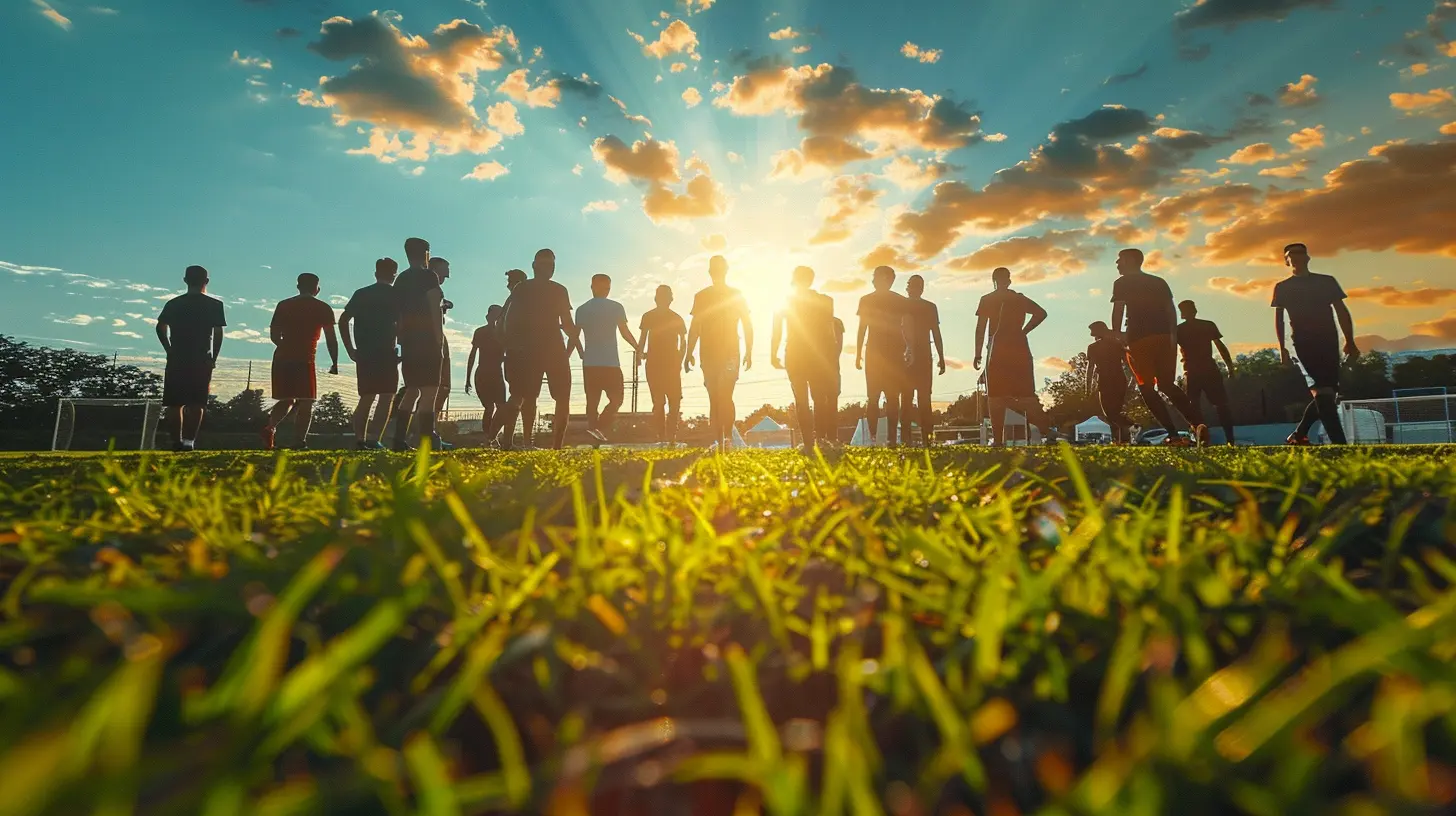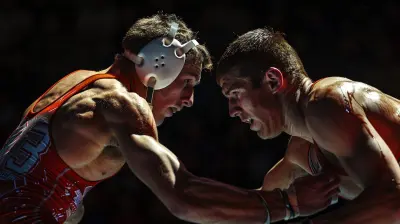Exploring the Importance of Team Roles and Responsibilities
21 August 2025
If you've ever played sports — whether it's soccer, basketball, football, or even a less mainstream game like ultimate frisbee — you know that no matter how talented an individual is, one person can't carry the whole squad. Sure, we've all seen those jaw-dropping performances where a star player seems unstoppable. But here's the thing: teams win championships, not lone wolves.
And that’s where the magic of team roles and responsibilities comes in.
In this article, we’re diving deep into why clearly defined roles matter so much in sports, how they contribute to the team's success, and what happens when they're neglected. We'll talk about the secret sauce behind elite teams, and yes, how understanding and embracing your role can turn a good team into a great one.
Why Team Roles Matter More Than You Think
Every player on the field (or court, rink, pitch — you name it) has a job. Not just running, passing, blocking, or scoring — there’s a deeper level to it, involving mindset, responsibilities, communication, and cohesion.Think of a team like a band. You can’t have five drummers and no lead singer. You need harmony, balance, and most importantly, people who know their roles and play them well.
In sports, when everyone is clear about what they’re supposed to do, everything flows better. The offense moves smoothly, the defense is airtight, and the chemistry? Off the charts.
But when roles become blurry or, worse, ignored? Chaos. Confusion. Frustration. Kinda like trying to dance without music.
Defining Team Roles: It's More Than Just Positions
You might think, “Hey, I’m a forward. Isn’t that my role?” Well, yes and no.Your position is just part of your role. Roles are a broader concept that includes:
- Primary responsibilities (like scoring or defending)
- Behavioral expectations (leadership, communication, hustle)
- Strategic contributions (setting screens, creating space, organizing defense)
For example, a midfielder in soccer might not score much, but their role in connecting the play, recovering possession, and maintaining tempo is crucial.
Sometimes a player might have a “silent hero” role — they don’t fill the stat sheet, but without them, the house falls apart.
The Key Roles Within Any Sports Team
Let’s break down some common team roles. Remember, these aren’t about titles — they’re about functions.1. The Leader
Every team needs that one person who commands respect, lifts others, and keeps everyone accountable. They're vocal, composed, and lead by example — especially in crunch moments. Think of them as the team’s compass.2. The Organizer
Usually a point guard in basketball or a central midfielder in soccer, this player keeps the structure intact. They’re always thinking two steps ahead and directing traffic like a coach on the field.3. The Hustler
Not every team member needs to be flashy. The hustler makes the dirty plays — diving for loose balls, chasing down opponents, doing the gritty work others avoid. Every team needs one.4. The Specialist
They might not be on the field all the time, but when the team needs a clutch three-pointer, a free-kick taker, or a penalty stopper — they step in and shine.5. The Energizer
This role is pure vibes. The energizer lifts spirits, cracks jokes, and brings the positivity needed during the lows of the season. They’re the team glue.Which one are you? Take a second to think about it — because knowing your role is step one to owning it.
Responsibilities: The Backbone of Team Function
Roles are one thing — responsibilities are where the rubber meets the road.Each role comes with a set of expectations. And when individuals meet those expectations, the whole machine runs like a well-oiled engine.
Let’s take an example. In American football, the quarterback is expected to:
- Read defenses
- Call audibles
- Deliver accurate throws
- Lead the offense
- Stay calm under pressure
If they try to play like a running back instead, it messes up the entire system.
Or take a volleyball libero — they're not there to spike or block. Their job is to dig, pass, and keep the play alive. It's not flashy, but it’s absolutely critical!
What Happens Without Clear Roles?
Imagine five players on a basketball team all wanting to be the star scorer. Shots get forced, teammates get frustrated, and rhythm disappears. On the flip side, if no one steps up to lead, the team lacks direction.Common issues when roles are unclear:
- Overlapping responsibilities – Ever seen two defenders crash into each other going for the same ball?
- Lack of accountability – “I didn’t know I was supposed to cover him!”
- Low morale – Players feeling underused or confused lose motivation.
- Inefficient performance – Effort without purpose achieves nothing.
Bottom line? No clarity = no cohesion.
How Coaches Shape and Assign Roles
A good coach isn’t just a tactician; they’re part psychologist, part strategist. They figure out:- What each player is good at
- Who meshes best together
- Who needs to lead and who needs to follow
- Which combinations unlock the best performance
They’ll pull you aside, tell you they trust you to shut down the opponent’s best player. Or they’ll ask you to come off the bench and bring energy.
Roles may shift during a season – due to injuries, form, or matchups – so adaptability is key. But the underlying principle stays: everyone must know what’s expected of them.
Communication: The Secret Ingredient
Knowing your role is great. But the cherry on top? Talking about it.On-field communication helps reinforce roles in motion. A defender yells, “I’ve got your back!” — letting the attacker push forward with confidence. A second baseman shouts to the shortstop, “Shift left!” to rearrange the infield defense.
Constant communication helps:
- Reduce hesitation
- Build trust
- Enhance strategic execution
In team huddles, locker rooms, and even during timeouts — words keep roles aligned.
Adapting Roles as the Game Evolves
Let’s face it, sports are unpredictable. Injuries happen. Hot streaks and slumps are real. Opponents change tactics. Flexibility is clutch.Great teams don’t just stick to rigid roles — they adapt.
Maybe the sixth man becomes a starter. Maybe a rookie earns a bigger voice. Roles are dynamic — but only when players are mature and selfless enough to adjust.
Remember the phrase: “Next man up.” That only works when people are ready to step confidently into new responsibilities.
The Role of Chemistry and Trust
At some point, it’s not just about skill or athleticism. It’s about vibe. Chemistry. That intangible connection where teammates just know what the other is thinking.Roles help build that chemistry. When you trust your teammate to do their job, you're free to do yours even better.
It’s like a dance routine. If everyone knows their steps, the performance becomes seamless. One missed move, and the whole thing unravels.
How to Embrace Your Role (Even If It’s Not Glamorous)
Not everyone can be the star. And honestly, most championship teams are built by role players who embrace their jobs with pride and passion.Here’s how to own your role like a pro:
- Understand your strengths – Know what you bring to the table.
- Communicate with coaches – Get clarity and feedback.
- Support your teammates – Celebrate their successes too.
- Stay humble and hungry – Great roles turn into greater ones over time.
- Take pride in the little things – Hustle, effort, and attitude matter more than you know.
Tim Duncan wasn’t flashy. Dennis Rodman didn’t score much. But both were vital to championship dynasties.
A Real-Life Example: The Golden State Warriors
Let’s quickly look at the Warriors during their 2015 NBA championship run. Steph Curry was the MVP, sure, but that team worked because:- Draymond Green played the ultimate defensive anchor and vocal leader.
- Klay Thompson was a quiet assassin and elite two-way player.
- Andre Iguodala came off the bench, later winning Finals MVP for his defense on LeBron.
- Role players like Harrison Barnes and Shaun Livingston knew when to step up and when to step back.
Everyone had a lane. And they all stayed in it, full throttle.
What About Off the Field? Roles Still Matter
Sports teams don’t just exist during games. Practices, team meetings, travel days, even social events — team roles still play a part.- Who's the motivator when morale dips?
- Who keeps the locker room focused?
- Who mentors the new players?
These off-field roles often define the culture of a team. And culture? It wins games before they’re even played.
Final Thoughts: Know It, Own It, Love It
At the end of the day, being part of a team isn’t about individual glory — it’s about collective greatness. Roles and responsibilities are what turn a group of athletes into a unit that can beat the odds, push through adversity, and celebrate together.So whether you’re the go-to scorer, a bench spark plug, or the behind-the-scenes leader — your role matters. Embrace it. Master it. Elevate your team by being the best you.
Because when everyone knows their role and crushes it? That’s when championships are won.
all images in this post were generated using AI tools
Category:
Team SportsAuthor:

Ruben McCloud
Discussion
rate this article
1 comments
Xavi McMaster
Understanding roles elevates teamwork, driving success on and off the field.
September 13, 2025 at 4:10 AM

Ruben McCloud
Absolutely! Clear roles foster collaboration, enhance communication, and ultimately lead to greater achievements both in sports and other team environments.

